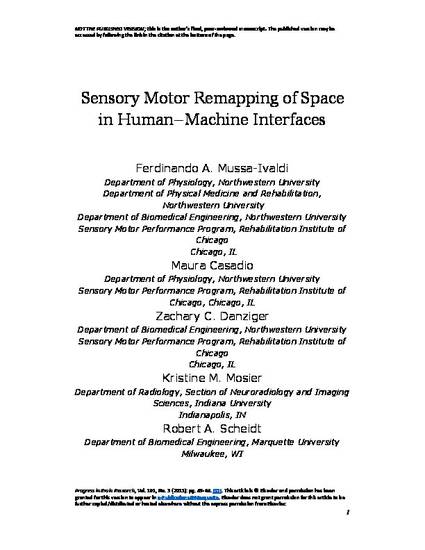
Studies of adaptation to patterns of deterministic forces have revealed the ability of the motor control system to form and use predictive representations of the environment. These studies have also pointed out that adaptation to novel dynamics is aimed at preserving the trajectories of a controlled endpoint, either the hand of a subject or a transported object. We review some of these experiments and present more recent studies aimed at understanding how the motor system forms representations of the physical space in which actions take place. An extensive line of investigations in visual information processing has dealt with the issue of how the Euclidean properties of space are recovered from visual signals that do not appear to possess these properties. The same question is addressed here in the context of motor behavior and motor learning by observing how people remap hand gestures and body motions that control the state of an external device. We present some theoretical considerations and experimental evidence about the ability of the nervous system to create novel patterns of coordination that are consistent with the representation of extrapersonal space. We also discuss the perspective of endowing human–machine interfaces with learning algorithms that, combined with human learning, may facilitate the control of powered wheelchairs and other assistive devices.
Available at: http://works.bepress.com/robert_scheidt/56/
Accepted version. Progress in Brain Research, Vol. 191, No. 3 (2011): 45–64. DOI. © 2011 Elsevier. Used with permission.
NOTICE: this is the author’s version of a work that was accepted for publication in Progress in Brain Research. Changes resulting from the publishing process, such as peer review, editing, corrections, structural formatting, and other quality control mechanisms may not be reflected in this document. Changes may have been made to this work since it was submitted for publication. A definitive version was subsequently published in Progress in Brain Research, Vol. 191, No. 3 (2011): 45-64. © 2011 Elsevier. Used with permission.